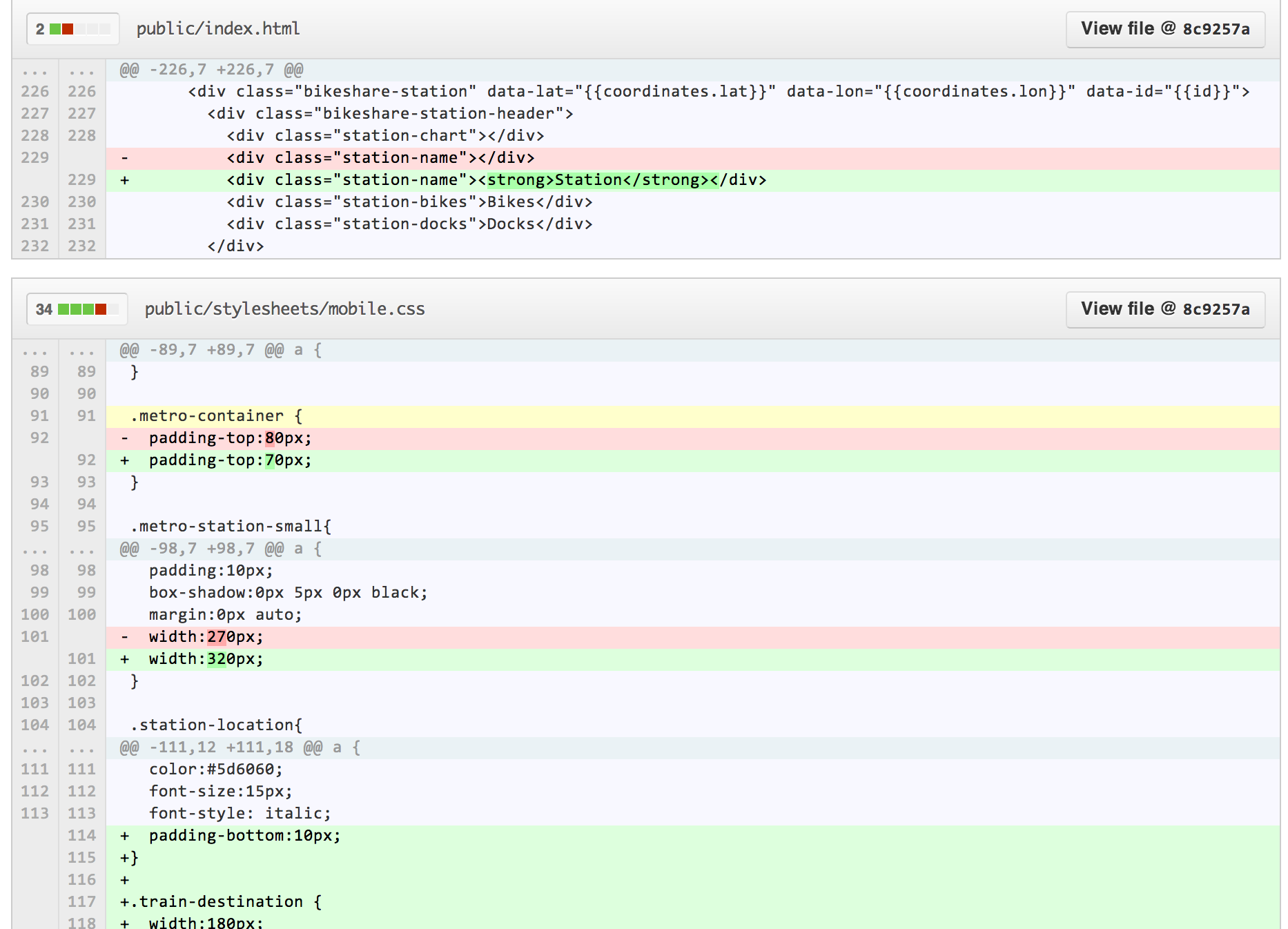
I work at OpenIDEO, an online Open Innovation platform experimenting with how to open source social impact. We spend a lot of time thinking about how to strengthen ideas. The reason we do this is because good ideas are only a fraction of the battle, execution is much harder, but the stronger the idea the easier the execution. In our process we believe that there's value in spending time exploring the question & finding inspiration in unlikely places. We structure our process with these beliefs. We even offer collaboration points to encourage the sharing of ideas & information in our challenge topics. Yet we don't yet make this process seamless because we just started. Part of what I think about is how to improve the process.
In this pursuit I've been staring at GitHub and noticing the beauty and ease at which it updates ideas. GitHub creates precise clarity in both changes to text & who created those changes. This means that instead of having a bunch of folks somewhat awkwardly commenting on each other's ideas, they're able to quickly take it, reshape it, and either submit it for approval by the originator or fork it off on their own. Instead of having to wrestle with the platform once users are up to speed on a few commands they can copy, splice & play without any confusion on how the work has evolved.
On OpenIDEO we have one person who owns the idea. Others can comment on it but short of a labor intensive process of copy & pasting the idea and then reformatting it back into our back end, there is little way to take this idea forward. We do have some features to do this including a build upon feature that allows you to create a new idea that has a link to this old idea. Yet still our process favors individual winners instead of teams. Instead of having an owner of an idea like we have on OpenIDEO, if the idea was on GitHub it would allow anyone to publish the idea text and then anyone else could fork it to take ownership of it, or push a commit to improve the idea. This means teams can form as they'd like, freely splitting apart & coming together with exact verification of what has happened. The two pictures below illustrate what GitHub does to show changes in ideas:


In the two images above I've gone and looked at the commit tab of GitHub after making an edit and committing it to GitHub. The platform automatically highlights the changes (green for additions, red for subtractions) and only shows the modified part on the commit view. As you can see from this example, the ideas origins are suddenly 100% traceable to the first time this was posted on GitHub.
The other major benefit from this approach is that we are constantly asking how we can push ideas to full projects, whether it is a new product, movement, prototype or even verified research. I'm a strong believer than an idea is the easy part, but executing it well is where it gets very tricky. What I like about using GitHub to strengthen ideas is that it provides a seamless evolution as the idea transforms into action for anything with a digital orientation. If the interface could be made much more simple for non-coders as an idea was prototyped, we could add that prototype to GitHub & it could become a canonical list of an idea's origin.
Now, the problem with that is that as Einstein is famously quoted, the secret to creativity is knowing how to hide your sources. While the idea above and the idea of OpenIDEO are very appealing, as things grow in influence, people's desire to take more credit than they deserve grows. I don't pretend to have an answer for what to do there, if you do please comment below and/or tweet at me @nathanmaton.